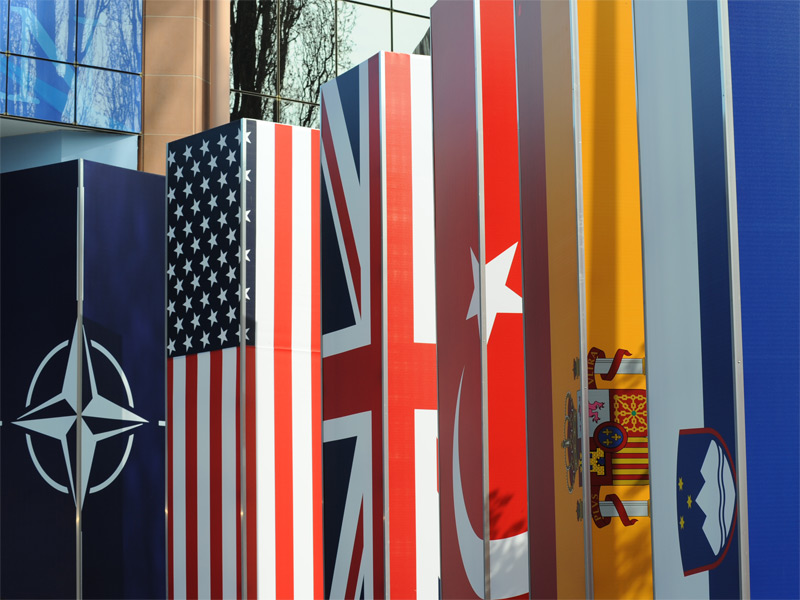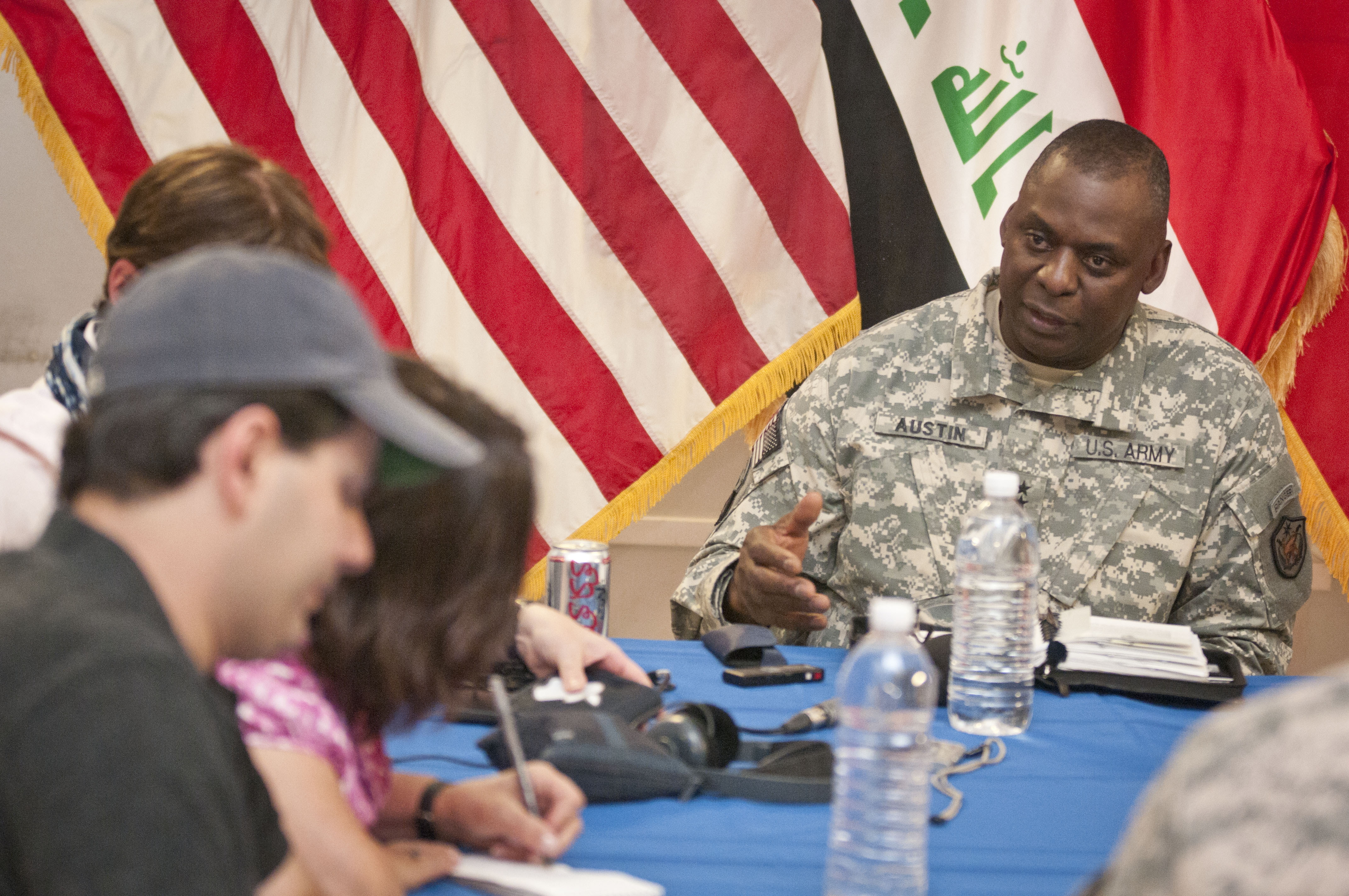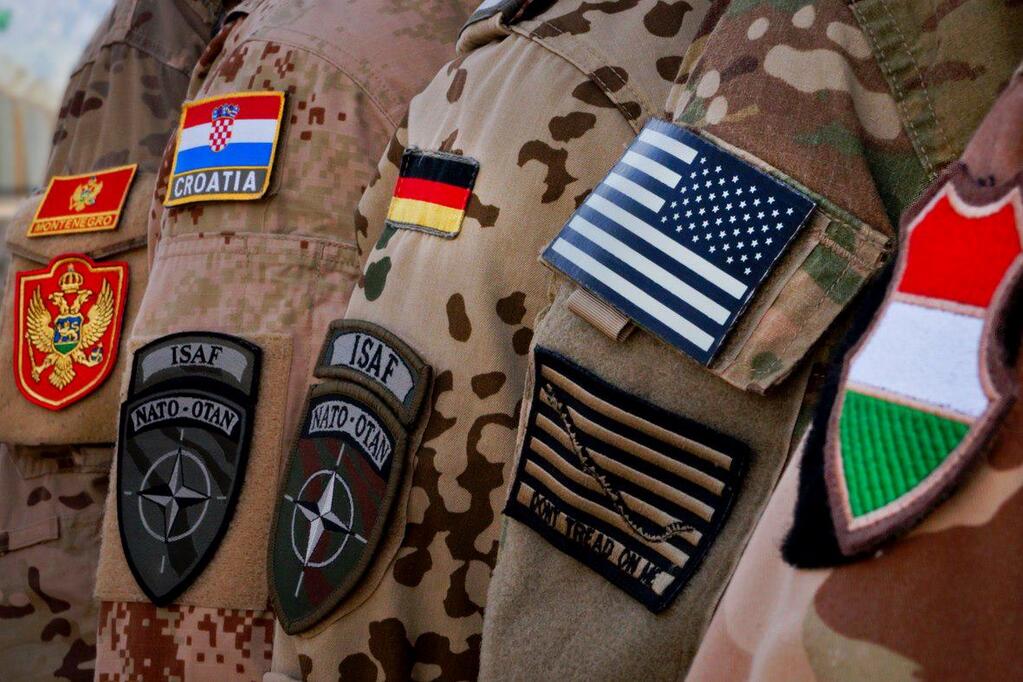The United States is more polarized than it has ever been. People are angry about racism, structural violence, and worsening economic inequality; and worried about the consequences of the pandemic, the upcoming presidential election, and the potential for increased political violence.
So what does the younger generation think? We asked a dozen university students what worries them most about the state of the country today, and what they think is the most important problem to solve to ensure peace and shared prosperity. Here are their answers.
Aimee Barnes
UC SAN DIEGO
I’m most worried about widening inequality coupled with the criminalization of poverty and the United States’ inadequate social safety net. Poverty, poverty-related crimes, and other social ills are being “addressed” through over-policing and mass incarceration instead of through increasing investment in education, affordable housing, and universal health care, including mental health services. Rather than developing a better safety net and expanding social programs, the few protections we have are being rolled back, evidenced by increasing limits on eligibility for the Supplemental Nutrition Assistance Program (also known as food stamps) or threats to the Affordable Care Act, which expanded health insurance coverage to millions of people.
The erosion of an already weak safety net, which could have alleviated the social costs of income inequality, is coupled with the criminalization of poverty. Consider the fact that when poor people are unable to pay excessive fines over minor offenses, they risk jail time. Or, when poor people cannot afford bail, they are more likely to accept unfavorable plea deals to gain release than others who are bailed out to build their case. The consequences of this system disproportionately fall on people of color, deepening not only income inequality but racial inequality. Systemic class and racial injustices also contribute to our political divisions. Without addressing income inequality, racial inequality, and inequality in the criminal justice system and other institutions, there is no chance of shared prosperity in the US.
Corwin Dark
American University
What worries me the most about the state of the country today is the changing role of the executive branch within the government. In particular, Congress’ abdication of its authority in guiding the use of military force post-9/11 has always troubled me, and Trump has introduced an entirely new set of questions regarding executive authority before we were able to resolve those left by his predecessors. Even if the next president devotes a significant amount of energy to revitalizing the norms that govern executive authority, I feel like the damage will prove to be permanent.
Regarding equitable peace and prosperity in the US, I think the most important problem is inequality in the primary and secondary education system. Schools continue to be funded according to the affluence of their community, at levels insufficient to provide the required materials or staff, while being supported by underfunded and uneven bureaucratic systems that hemorrhage efficiency. Moreover, the current educational crisis in the wake of COVID-19 has shown that our public school system is aging and deeply inflexible. Schools in the US are not even able to distribute the majority of their free meals to students who need them, let alone provide a quality education. What puzzles me about this issue is that the current administration, and both political parties, have shown they are willing to go into debt for the sake of tax cuts and disaster relief. Why not extend the same generosity to the system that fuels our economy and provides the workers, statespeople, and soldiers who will determine the course of our country in the future?
Lilly Dunn
UC San Diego
What worries me most about the state of the country is the increased attack on freedom of the press. From the beginning, the current administration disparaged most of the mainstream media, dubbing everything except for right-wing media as “Fake News”. Because of this, and the endurance of Trump’s supporters, US citizens live in two completely different realities. When we cannot agree on basic facts, the nation’s discussion becomes moot. A free and trusted press is key to having a healthy, functioning democracy, but these constant attacks are putting the United States at risk.
We are seeing this even more with the George Floyd protests. Many journalists are reporting that they are being suppressed by police forces. The US Press Freedom Tracker reports 279+ press freedom incidents [at the time of this writing], including the arrest of a HuffPost reporter, the shooting of a WCCO photojournalist with a rubber bullet, and the assault by Minnesota state patrol of an NBC producer using “tear gas, pepper spray, and concussion grenades.” Times of crisis are when the security of civil rights are tested, and this could not be a more obvious sign of illness within US democracy.
Distrust in the media cannot be fixed overnight. Elizabeth Jensen concedes that “some news consumers won’t be swayed… Their suspicions and distrust run too deep.” She also gives hope, however, saying that media outlets can help repair distrust by hiring staff “not based on the coasts.” Having more diversity in media staffs can give common ground to the groups in the US that mistrust media. She also calls for “basic accuracy” within journalism, because mistakes can result in huge losses in readership and respect.
It will take years to rebuild the relationship between the media and the people. But the optimist in me says that this can be done.
Amytess Girgis
University of Michigan
As we sit in our homes watching the carnage around us, countless young Americans are asking the same question: what does it mean to enter adulthood at a time when it feels like the entire country is falling apart?
At 20 years old, I’m about to graduate college during the worst recession in a century. In multiple state capitals, economic anxiety has been leveraged by white supremacists to sow the seeds of a violent right-wing uprising. Climate change is already ravaging communities, including those in my home state of Michigan. And long-suppressed outrage at police violence is finally unfettered, bringing tensions in communities like Minneapolis to a head.
None of these problems are new. While the COVID-19 crisis has brought unique challenges, this moment speaks to a longer arc of decline. America’s fundamental weaknesses—from wealth inequality to white supremacy—are now being exacerbated by an economic insecurity rivaled only by the Great Depression. Ample research links wealth inequality and democratic decline; but what happens when we pair that with a virus that’s completely eroded our faith in government? It’s only a matter of time before we reach a breaking point. What I fear is the direction we’ll head in the aftermath.
While it’s evident that the American left has grown stronger in the past decade, the fact remains that calls for radical wealth redistribution have a weak hold inside electoral politics and little leadership outside of it. I fear America is barreling towards a political reckoning fueled by discontents that cannot be leveraged by their own sources. In this vacuum, the burgeoning right-wing insurgency will organize effectively around anti-welfare positions, poised to exacerbate the oppression that got us here in the first place. An increasingly militarized state, bolstered by the suppression that comes with a pandemic, will have little difficulty sidestepping whatever calls for justice remain.
History tells us that the current conditions are ripe for transformative change. The question we must all be asking is whether the pendulum will swing towards progress or repression. Should we hope to weather the coming storm, young people like myself laden with anger at the state— for permitting economic abandonment of the majority, for strengthening the prison system, for refusing to respond to the climate crisis—must remain vigilant. If we fail to bolster our rage with the strength of an effective movement, others surely will.
Sooyeon Kang
University of Denver
There are very few things that are uniting the states of America today. In the last few years, the reality of America’s deep fissures over politics, race, and class have become increasingly prominent, and while the fight against the novel coronavirus represented an opportunity to unify the country—as was capitalized on in New Zealand, Iceland, and Finland, among others, it has only served to deepen the divide in America. The country, as a whole, is fragmented more than ever before and the blame is not only with our commander in chief.
Divide and conquer is often an enemy’s strategy to weaken an opponent, and we can expect that Russia and China will continue to orchestrate misinformation campaigns to sow seeds of discord in our society. But what is more troubling is that sources of division are also coming from within and it’s happening during a pandemic—when unity could mean the difference between life and death. Yes, America has a leadership problem. From touting the benefits of an unproven drug and repudiating the expert warnings of Dr. Anthony Fauci, to having governors not only fend for themselves but then encouraging protesters to “liberate” states with strict coronavirus restrictions, President Donald Trump’s mixed messages have been negligent at best and deadly at worst. However, we also have a deeper societal problem that must be addressed if we want to build a robust civil society that is not easily polarized by any future leader. Americans need to look past their differences—whether Republican or Democrat, black or white, CEO or unemployed—and recognize each other as equals with equal rights. The echo-chambers we’ve created for ourselves and the figurative walls we’ve built to keep out of our conversations those who do not look like us and think like us, are proving to be more damaging and costly than any physical wall.
As we continue to weather the peaks and valleys of 2020, contradictory information will continue to fill our screens and ears. But information, much like crises, are tools and opportunities. We can continue going to our trusted sources to validate our views, while dismissing those of others; or we can from time to time question our own perspective and be willing to be challenged by people with opposing beliefs. Ultimately, it is our everyday actions and words that will either unite or divide the multicolored states of America.
Apolinar Quezada
American University
To say that the contemporary United States is the most polarized time in its history may be slightly too alarmist. Our past reminds us that different eras have paved the way for similar sentiments. In fact, Federalist and anti-Federalist factions at the inception of our country may have been as sturdy as Democrat and Republican divisions were throughout the latter half of the 19th century or as robust as they feel to this day. Fortunately, the discord driving American political processes has not yet successfully undermined our experiment with democracy. With a few exceptions such as the American Civil War, transitions of power and ideological conflict have been resolved (or continue to this day) through nonviolent means. Time after time, the American political system has proven its resilience and for that reason, it is seen as an archetype for democracy around the world.
I find it most worrisome, however, that present-day Americans may be taking this resilience for granted. The reality is that democracy is delicate, fragile, and can turn violent swiftly under ripe conditions. Innovations of today pose a new, unprecedented threat, which I am uncertain we are prepared for. Technologies like the Internet and social media have interconnected people across the country and have created echo chambers that only exacerbate divides within an already binary political system. Moreover, disinformation on these platforms further complicates online dynamics as citizens log on to sites only to tread through volumes of contradictory information. Emotions of anger, frustration, and disillusionment fill timelines; the results are feeds of political Twitter turning into ideological confrontations. So, while in terms of true ideation Americans may not be as radical as it seems, the perception of strong factions proliferated online may be just strong enough to foster opportunities for violent entrepreneurs to garner support and mobilize.
In this sense, the most significant challenge for Americans today is the upcoming election cycle. It is uncertain how Americans will react to election results as we near November 2020. History suggests that Americans will transition peacefully, but the President of the United States is also a divisive figure with fervent supporters and bellicose opposition. If perceptions on social media hold true and those online stand rigidly behind their beliefs, I fear that regardless of who wins, some form of conflict will arise. As we move forward, the next president—whomever it may be—must prioritize mending party divides.
Cory Rogers
UC San Diego
Faith in the fair counting of votes is the most basic test of democracy. I fear the US is reaching a point where that faith is becoming fantasy, where due to the distortions of the Electoral College and the structure of the Senate, the US is sliding toward a future of minority rule.
A little context: In the last five presidential elections, the Democratic candidate has twice won the popular vote and lost the White House. The last time that happened was 1888. In today’s Senate, 53 senators representing 153 million Americans routinely outvote 47 senators representing 168 million Americans—an imbalance poised to worsen. By 2040, some studies predict 70 percent of Americans will live in just 15 states.
Meanwhile, our national politics is characterized by a complex of hyperactivity but low participation, which makes rising expectations harder to meet. A 55 percent turnout is considered high in a national election. The number drops to 20 percent for more local polls. Amid such ambivalence over voting, what happens when majorities continue to lose national elections? What happens when the only remedy—constitutional amendments—requires a minority party to voluntarily give up power?
Unless the Democrats take back the Senate and seek remedies to the equal vote principle, I fear we are in for the extended marginalization of the majority voice. I worry that American democracy will be unable to manage such a contradiction peacefully, and that a return to baser forms of political competition, like violence, will become more and more likely.
Emily Russell
University of Michigan
If the US is broken into “befores” and “afters,” notable fractures of the 21st century include 9/11, the Great Recession, and the COVID-19 pandemic. Each of these events decisively altered domestic life, conjuring an ethnic minority scapegoat to legitimize increased state control. These concurrent problems constitute America’s most worrying condition: ethnonationalism.
Under this system, emergent political, economic, and environmental threats privilege protection and prosperity for some citizens (read: white) over others. This takes the form of disproportionate provisions afforded by the state to communities based on race, yielding disparate outcomes for longevity. Neither shared prosperity nor peace is achieved in a society where some are allowed to flourish and others face recurrent violence.
The nationalism that I have grown up with is a dehumanizing one—where the definition of “who counts” has become an increasingly narrow subset of people—and one that permits police killings of black and non-white citizens, raids and deportations of migrant families, and uncondemned white-national terrorism.
This definition of who is a member of the nation determines who is entitled to state security. The narrowing coincides with increased militarization of domestic security infrastructure. Patrol rifles, MRAP tanks, and body armor are predominantly possessed and deployed to “restore law and order” against non-white protestors and causes. These technologies are used against those who threaten the state’s homogeneity. The results are injurious and fatal, demonstrating that the guarantees of state security do not stretch to all members of society.
Such prominent enactments of physical state violence are an abhorrent threat to peace in contemporary America. Allowing peace to prosper will require redefining security in the US, then repurposing its infrastructures. Instead of employing officers for the provision of national security, which privileges an ethnically defined citizenry, we should prioritize human security, which protects all people falling within our permeable political borders. Giving civic purposes to the infrastructure of domestic security regimes and replacing the combat gear of local police with a disarmed alternative will free communities from otherwise-violent state abuse.
Such advances will promote shared prosperity in the US through protection against global, non-military threats, like COVID-19 and other pandemics, or climate change. These inescapable features of our future world transcend national borders and ethnic identities, and our investments in security must protect us—all of us—from their havoc.
Averell Schmidt
Harvard University
COVID-19. Extreme wealth inequality. The politicization of climate change, public health, and science. Turbulent US-China relations. Gerrymandering. Police brutality. Threats to our free press. My list of concerns about the state of the United States seems to grow longer each day.
Of all these concerns, my biggest fear is that we are witnessing the erosion in the United States of what political scientists refer to as “losers’ consent.” Losers’ consent is the bedrock principle upon which the legitimacy of democratic political systems stands. Democratic elections, by their very nature, produce winners and losers, and the ongoing viability of democratic systems requires losers to accept their losses, allow winners to govern, and agree to compete electorally again in the future. When losing parties refuse to accept electoral outcomes, they threaten the peaceful and predictable transition of power.
Unfortunately, I see indications that this foundational principle is being undermined in the United States. Whether it is the sitting president alleging, without evidence, that states governed by the opposing party are engaging in electoral fraud, or outgoing legislatures stripping powers from incoming governors, as has happened in Wisconsin and North Carolina, I fear that we are witnessing the whittling away of the basic norms sustaining our political system.
Such actions and claims signal that tomorrow’s electoral losers may no longer be willing to accept their losses as the outcome of a just political process. This worries me greatly. Ensuring that our elections’ winners and losers continue to work out their differences through institutionalized political processes is key to sustaining peace and shared prosperity in the United States.
Christopher Shay
University of Denver
Though electoral violence has been widespread during periods of American history, it has become almost unheard of in recent years. President Trump’s false voter fraud rhetoric, however, may help resurrect this phenomenon. This is because the president’s words may encourage potentially dangerous nonstate armed groups to indulge in voter intimidation.
The US hosts hundreds of local hate groups, many of which function as well-armed paramilitaries. At the president’s urging, these groups have frequently protested social distancing orders meant to contain the spread of the novel coronavirus. In a way, each protest has amounted to a show of force, in which activists armed with assault weapons deliberately transgress ‘lockdown’ measures as if to invite a confrontation with law enforcement agents. There is a chance that these groups will employ similar methods to disrupt voting this November., especially because the president and his allies have called on their supporters to guard against vote-rigging on election day.
An important finding from nonviolent resistance research is that human beings usually refrain from resistance activity when doing so carries high personal risk. This explains why social movements that maintain nonviolent discipline tend to attract many more adherents than violent movements. It also explains why the mere presence of well-armed paramilitaries at polling booths might scare off voters, many of whom may decide to forego voting rather than be subjected to intimidation or risk being caught in a confrontation.
Even more worrisome than implicit intimidation is the prospect of actual fighting. So far, paramilitary protests have taken place in public spaces, the very spaces that most people are currently avoiding. Circumstances will change drastically when paramilitaries compete for space with voters, counter-protesters, and law enforcement agents. It is not difficult to imagine scuffles breaking out that quickly escalate to combat rarely seen outside of war zones. Besides extracting a terrible human toll, these incidents would badly disrupt polling.
Intimidation and open violence on election day could skew results and undermine the legitimacy of the democratic process, no matter who wins the vote count. It, therefore, behooves the president to discourage armed activism. Additionally, in case disruption is unavoidable, states should accelerate the move to remote voting and prepare contingency plans to address electoral disruptions.




